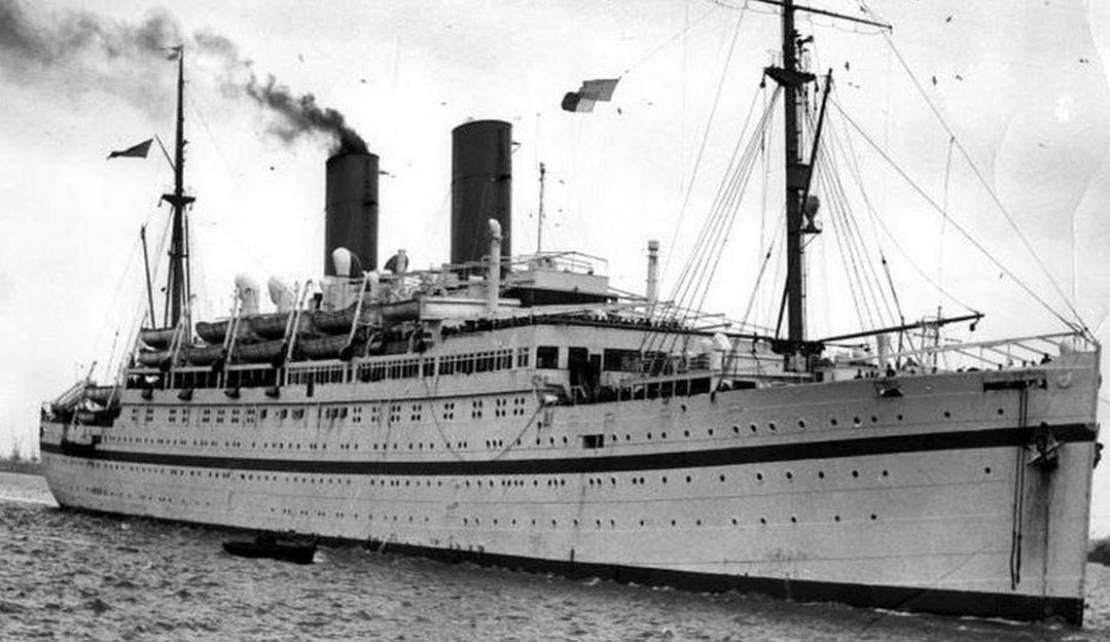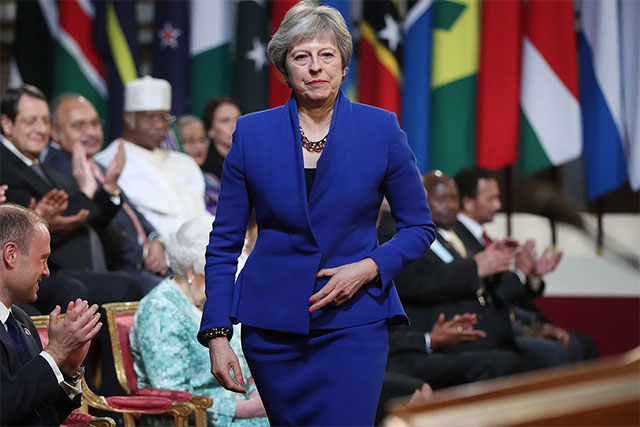BRITAIN | The Windrush Scandal, the shame of British Racism and hypocracy

On the 24th of May 1948, a ship called the HTM Empire Windrush, left Jamaica bound for England transporting workers from Jamaica, British Guiana, Trinidad and Tobago, Barbados and other islands, to help fill critical post-war UK labour shortages.
The HTM Empire Windrush, named for the River Windrush, a small tributary of the Thames, that flows through the Cotswolds towards Oxford, arrived at Tilbury dock on June 22, 1948 with its human cargo of loyal British Colonial citizens, many of them children, who were eager to do what they could to assist the motherland’s post world war effort.
According to a passenger on the ship, the long journey from Jamaica to the UK took about 22 days. But this time, the trip across the ocean bore little resemblance to that which their ancestors took, strapped in the cargo hold of British slave ships, to do back breaking slave labour on the sugar plantations owned by mainly British colonial absentee landlords on the islands from which they came.

With them they brought an explosion of dance, art, writing and music which would transform British culture.
It is not clear how many people of the Windrush generation went to Britain, but they are thought to be in their thousands. However, according to University of Oxford estimates, they are among more than 500,000 UK residents who were born in a Commonwealth country and arrived in the UK before 1971.
The influx ended with the 1971 Immigration Act, when Commonwealth citizens already living in the UK were given indefinite leave to remain. After this, a British passport holder born overseas could only settle in the UK with both a work permit and proof of a parent or grandparent being born in the UK.
Now, decades later, thousands of persons who were British citizens when they consented to help Britain, and who arrived in the UK as children in the first wave of Commonwealth immigration are being threatened with deportation.
They have lived and worked in the UK for decades but many are now being told they are in Britain illegally, they are no longer British citizens and they and have to go back from whence they came.
The problem arises from the fact that under the 1971 Immigration Act, all Commonwealth citizens already living in the UK were given indefinite leave to remain - but the right to free movement between Commonwealth nations was ended from that date onwards.
However, The Home Office kept no record of those granted leave to remain and issued no paperwork - making it difficult for Windrush arrivals to prove their legal status.

Those who now lacked documents were told they needed evidence to continue working, get NHS treatment, or even to remain in the UK.
Changes to immigration law by successive governments left people fearful about their status.
A review of historical cases found that at least 83 individuals who had arrived before 1973 had been removed from the country.
Member of parliament David Lammy in an incensed rage addressed parliament and lambasted the government for their insensitivity and what one writer called the “conspiracy of quiet callousness defining this Windrush scandal.”
In April 2018, then-prime minister Theresa May apologised for their treatment. An inquiry was announced and a compensation scheme established.
The inquiry, which released its report in March 2020, said that the scandal was "foreseeable and avoidable". It criticised "a culture of disbelief and carelessness" in the Home Office.
The inquiry made 30 recommendations including :
- setting up a full Home Office review of the UK's "hostile environment" immigration policy
- appointing a migrants commissioner
- establishing a race advisory board
The inquiry report author, Wendy Williams, warned there was a "grave risk" of similar problems happening again if the government failed to act following which the government accepted the recommendations worked on a plan to implement them.
The Windrush Compensation Scheme was established in April 2019 and about 15,000 people were thought to be eligible. However, by the end of September 2021 only a fifth of these had come forward and only a quarter had received compensation.
But those who were eligible for the compensation scheme were did not trust the system.
the compensation scheme has itself become a further trauma for those applying, with a "litany of flaws" in its design and operation.
Their report highlights excessive burdens on claimants, inadequate staffing and long delays - and says many of those affected "are still too fearful of the Home Office to apply."
The government must immediately guarantee that anyone who comes forward to clarify their status should not face deportation or detention, because as things stand today there are thousands of people who are too worried about their future to come forward. https://t.co/1eow7Ry70j
— David Lammy (@DavidLammy) April 16, 2018
They want an independent organisation to take over responsibility for the scheme, to "increase trust and encourage more applicants".
Campaigners have also criticised the size of the payments being handed out. For example, an individual would receive £10,000 for being deported, or £500 for denial of access to higher education. Individuals would receive £250 for every month of homelessness.
The government has said that the flat payment for deportation of £10,000 would also be combined with other payments such as loss of earnings. It adds that, including other schemes in place, more than £1m has been handed out to victims.
Responding to the Home Affairs Committee's report, the Home Office said the department was "steadfast in our commitment to ensure that members of the Windrush generation receive every penny of compensation that they are entitled to".
The Home Office said they would continue to improve the scheme, yet they continued to hunt and deport Caribbean nationals who are members of the Windrush Generation.
The latest such effort took place in November when four people were deported to Jamaica on a flight in the early hours of Wednesday morning that raised questions about the continuing viability of such flights given the costs involved. The leased Airbus A350-900, which can take up to 350 passengers, left Birmingham airport at 1.20am onthe morning in question, with four of an original list of more than 50 deportees onboard, along with escorts and crew.
The average cost of a Home Office deportation charter flight is £200,000, so the operation cost the equivalent of £50,000 a person. The numbers removed on the last four Jamaica charter flights have decreased steadily at 17, 13, seven and now four, according to a Guardian report.

According to a recent report in the Independent, Home Secretary Priti Patel is now facing legal action for the Windrush Compensation Scheme’s failure to pay out to victims – with just 5 per cent receiving money in the four years since the scandal came to light.
Windrush Lives and Good Law Project are asking for control of the Home Office-run scheme to be given to an independent organisation to ensure victims receive long-awaited justice as recommended by the Home Office.
The Guardian story noted that “Most cases were deferred by the Home Office themselves, and in those brought to court it was independent judges who ruled that there were legal grounds why many on the flight list needed to remain in the UK while their cases were considered further.”
Bella Sankey, the director of Detention Action, told the Guardian: “All of those removed from this flight were removed because either the court or the Home Office decided their removal would be unlawful. Yet still those removed may have had inadequate legal advice as a result of the shambolic operation of the legal advice system in detention. The high court has now given permission for Detention Action’s challenge to these shortcomings to be heard next month.”
